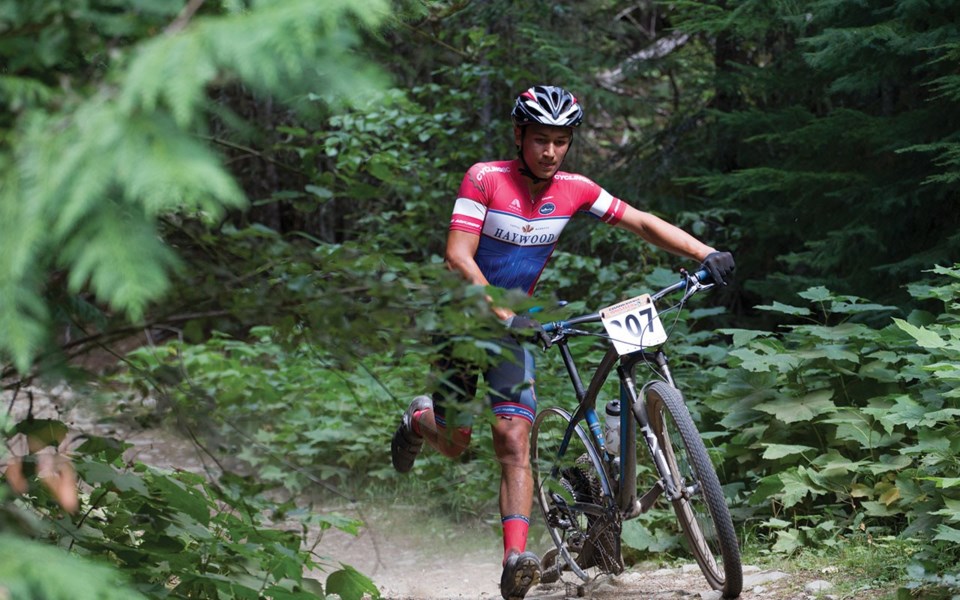I'll admit I'm one of the least trend-sensitive people that I know. I haven't started wearing shorter-length pants that show my socks, nor do I wear dress shoes without any socks at all. I figure that if I ignore these fashion fads for long enough, my usual dress sense (or lack thereof) will come around again. My money and effort is better spent elsewhere on something that I'll appreciate.
One of the more interesting trends I've noticed in the last few years is the 30-day challenge. This idea stemmed from the popular 1960 book Psycho-Cybernetics by Maxwell Maltz, a plastic surgeon who noticed his patients seemed to take about 21 days to get used to their new faces. The concept actually turned out to not hold water, but people believed in it enough that it started to appear in all types of self-help books and motivational speaker presentations. Further research in 2009 at University College London examined the new habits of 96 people over the space of 12 weeks, and found that the average time it takes for a new habit to stick is actually 66 days. Individual times varied from 18 to as long as 254 days. The point here is that everyone takes a different amount of time to adapt to a new habit, but there's no harm in seeing if 30 days will make the change stick.
When I first heard about 30-day challenges, they were more of the diet/cleanse/purge variety, which instantly made me roll my eyes. Unless you're an addict to a certain vice, I'm a firm believer that all things can be enjoyed in moderation. I don't need to demonstrate to myself or others what my body will look and/or feel like after 30 days of some neanderthal devolution diet. The most laughable of these is the Sober October challenge, where people try to not drink alcohol for a full calendar month only to undo all that cleansing effort by binge drinking on the eve of Halloween. Some folks can hold it together and power to them, but I find that if I just drink in moderation throughout the year, I'll be perfectly fine. If you struggle with alcoholism, you probably need to start with a longer stint than 30 days and don't be afraid to contact outreach services such as those offered by the Whistler Community Services Society.
There are also the challenges that add to your life rather than withdrawing something from it. This is more appealing to me for two reasons, I enjoy a physical and/or mental test and I feel I'm able to self-regulate my vices. Last month I was tasked through an employer of mine to help promote a 30-day ride challenge across the social media sphere. The idea was to get mountain bikers out riding their bikes for 30 days straight in July. There was no requirement of distance or vertical, just get out on your bike and ride at least one trail once a day. It was strongly suggested in my workplace (though not mandatory) that all of our team should participate if for no other reason than to practice what we preach. I had run out of excuses. I accepted the 30-Day Ride Challenge and threw the gauntlet down to a dozen of my mountain biker friends.
When this paper publishes, I'll be 11 days deep into the 30-Day Challenge. Here are a few of the positive things I've already noticed:
• I'm planning my days better. I tend to struggle with time efficiency and can suffer from task procrastination, leaving non-urgent chores on the backburner for weeks, sometimes months. If I can move daily tasks around to accommodate a quick bike ride, I should be able to get the other stuff done, too.
• The camaraderie is motivating. From ridelog apps I've noticed friends and colleagues logging small rides—as short as 15 to 20 minutes—on days they obviously didn't have a lot of spare time. I'm texting back and forth with a friend of mine in Squamish who—as a relatively new dad—has to wake up in the dawn hours in order to fit in a ride on his busy days.
• I'm more in tune with my bike and gear. To ride 30 days in a row, your bike has to be running in tip-top shape. If you need repairs, crack a beer, sit down and do it. Or call around and beg a bike shop to have your steed ready for the next day. And don't forget to promptly launder and dry your riding jerseys, shorts, chamois and gloves to avoid that sticky feeling at the start of the ride.
• Any weather is ride weather. Living so close to great trails, I'll often skip days when it's pouring rain or opt for lounging by the lake when it's 35 degrees outside instead of combatting dry and blown-out trails. Forcing myself to ride in these conditions makes me realize how privileged I am to live where I live.
• I'm finding trails I wouldn't otherwise ride. On a recent trip to Vancouver Island, I had to do my mapping homework to find the closest trails to where we were staying. Exploring unfamiliar trails—however challenging—is one of the reasons I got into this sport.
Whether or not people make it through the full 30 days isn't important. The choice to make a positive change in our daily routine is. So far so good. Nineteen days to go.
Vince Shuley is coming around to the idea of a 30-day challenge. For questions, comments or suggestions for The Outsider email vince@vinceshuley.com or Instagram @whis_vince.




